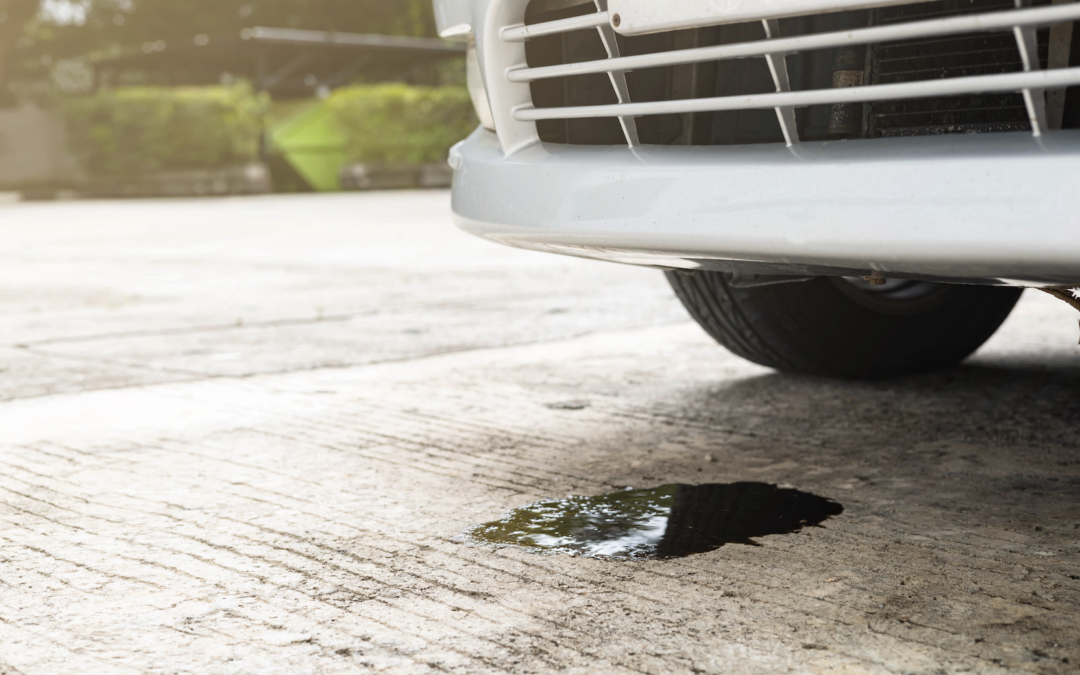Oil leaks can be a serious problem for vehicle owners. Not only can they cause damage to your engine, but they can also be a safety hazard. In this month’s blog post, we discuss the six most common causes of an oil leak in your vehicle, what causes each one, and what must be done to address any possible oil leaks in your vehicle.
Signs of Oil Leaks
Before we dive into the six most common causes for oil leaks, let’s first discuss the signs of oil leaks that you can look for to determine if you are experiencing an issue. Here are some of the most common signs:
- Puddles of oil under your vehicle,
- Burning oil smell,
- Low oil levels,
- Smoke coming from the engine,
- Oil on the engine or other parts of the vehicle,
- Warning lights on the dashboard.
If you notice any of these signs, it’s important to have your vehicle inspected and/or repaired by a service professional as soon as possible to prevent further damage.
Six Most Common Causes for Oil Leaks
- Broken Gaskets: Gaskets are mechanical seals that fill the space between two or more mating surfaces, preventing an oil leak. Over time, gaskets can undergo wear and tear due to friction, load and compression, oil pressure, and high temperatures. Compromised gaskets could result in an engine oil leak. The most common gaskets that fail are the valve cover gasket, cylinder head gasket, timing cover gasket, and oil pan gasket.
- Cracked or Dried-Out Seals: Your vehicle also comprises several oil seals, like the crankshaft and camshaft seal, that keeps engine oil from spilling. Eventually, these seals dry out, crack, or get damaged, compromising the seal and causing a leak.
- Bad Oil Filter: A damaged or incorrectly installed oil filter can cause an engine oil leak. So, check if the oil filter is loose or displaced, especially if you notice an oil leak after a recent oil change. Moreover, since oil filters trap contaminants, your oil filter can get blocked with debris, resulting in an engine oil leak.
- Loose or Over-tightened Oil Drain Plug: While a loose oil drain plug is a common reason for an engine oil leak, it’s only likely to happen if the drain plug is hand-fastened. In such a scenario, the oil drain plug may come undone while driving, resulting in an oil leak. In contrast, over-tightening the oil drain plug could damage the threads, eventually resulting in an oil leak.
- Damaged Oil Pan: The oil pan is located at the bottom of the engine and is responsible for holding your vehicle’s motor oil. If the oil pan gets damaged, it can cause an oil leak. This can happen if you hit a curb or speed bump too hard.
- Worn Piston Rings: Piston rings are responsible for sealing the combustion chamber and preventing oil from entering the combustion chamber. If the piston rings wear out, oil can enter the combustion chamber and cause an oil leak.
If you notice any of the common signs of oil leaks, it’s important to have your vehicle inspected as soon as possible. A trained service professional can diagnose the problem and recommend the best course of action for repair. The longer you wait, the more damage can occur to your engine, which can be costly to repair. If you have concerns about a possible oil leak, contact the professionals at Campus Repair to schedule an appointment for an inspection.

